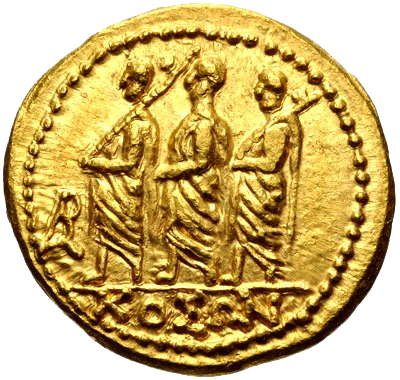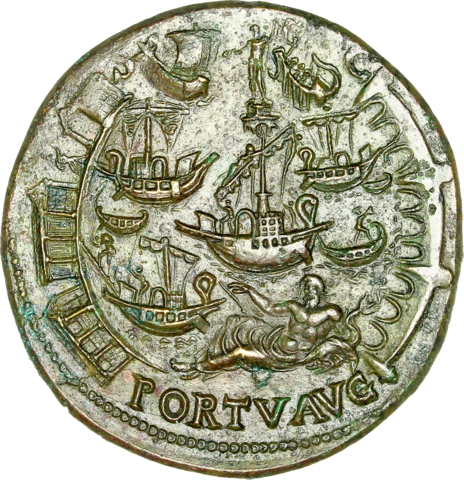These are Ancient Roman words you should be familiar with in order to get the best marks in your exam.
Aedile - One of the seven magisterial positions in Rome. You will find out more about aediles in the Roman Republic section of Classical Roman Power and Freedom.
Campus Martius - Means Field of Mars. This was the plain on which the Comitia Centuriata met.

Capite Censi - Means "counted by head". Within the Comitia Centuriata, the capite censi were the voting group with no wealth. Because they had no noteworthy wealth or property, the only thing worth counting was the person themselves (their "head"). The capite censi were split into juniores and seniores.
Censor - One of the seven magisterial positions in Rome. You will find out more about censors in the Roman Republic section of Classical Roman Power and Freedom.
Century - In Ancient Rome, this word referred to a group of people. This could refer to soldiers, who were split into centuries. It could also refer to the voting groups in the Comitia Centuriata. In neither case did the people within the group number 100.
Comitia Centiuriata - Means Assembly of the Centuries. This was the most powerful assembly. This assembly chose the most powerful magistrates (consuls, praetors and censors), made laws and decided on issues of war and peace.
Comitia Curiata - Means Curiate Assembly. Voters were put into groups based on which family they were part of. This assembly had little power, however it did decide on some religious matters and ceremonially gave power to newly-elected officials.
Comitia Tributa - Means Assembly of the Tribes. The main task of this assemble was to choose aediles and quaestors.
Concilium Plebis - Means Assembly of the Plebs. This was the only assembly to exclude patricians. This assembly was of relatively minor importance, however it did have the important task of electing the 10 Tribunes of the People.
Consul - One of the seven magisterial positions in Rome. You will find out more about consuls in the Roman Republic section of Classical Roman Power and Freedom.

Cursus Honorum - The cursus honorum detailed the steps a politician had to take to achieve power. They had to first serve ten years in the army. Then they could become an aedile, then a quaestor, then a praetor, then finally a consul. Censors, Tribunes of the People and dictators were not part of the cursus honorum.
Dictator - One of the seven magisterial positions in Rome. You will find out more about dictators in the Roman Republic section of Classical Roman Power and Freedom.
Equestrians - Equestrians were rich businessmen. A person had to have at least 400,000 sesterces to be an equestrian.
Equites - Within the Comitia Centuriata, the equites were the voting group with the largest wealth. Equites were split into juniores and seniores.
Imperium - The power to control the army, pass laws and enact punishment. Only consuls, praetors and dictators had imperium.
Lictors - Lictors were bodyguards who guarded any official who had the power of imperium - consuls, praetors and dictators. The number of lictors an official had was a symbol of how much power they had: dictators had 24 lictors, consuls 12 and praetors 6.
Patricians - The Roman word for noble families. This term encompassed the two highest social classes in Rome: senators and equestrians. Every patricians had a famous lineage.
Peculium - This was a wage that a slave was given. The slave could save this wage up and use it to buy their freedom.
Plebeians - Everyone who wasn't a patrician was a plebeians. Plebeians were the commoners of Rome, however some plebeians were as rich or richer than some patricians. Plebeians did not have famous lineages.
Potestas - The power to enforce the law when this enforcement was necessary for the official to carry out their job. All officials had potestas.
Praetor - One of the seven magisterial positions in Rome. You will find out more about praetors in the Roman Republic section of Classical Roman Power and Freedom.
Quaestor - One of the seven magisterial positions in Rome. You will find out more about quaestors in the Roman Republic section of Classical Roman Power and Freedom.
Senators - Senators were the political class of Rome. A person had to have at least 1,000,000 sesterces to be a senator. In Ancient Rome senator was a social class not a job, so not all senators were in the senate.
Senātus Populusque Rōmānus - Means "The Senate and the People of Rome." This was a phrase used to describe the groups who ran Rome. Therefore, this phrase represented Rome's democratic nature.
Sesterce - A sesterce was an Ancient Roman coin. An average Roman man could earn about 3-4 sesterces daily.

Villa Rustica - Some rich Romans owned a Villa Rustica. This was a farm that slaves worked on. A slave usually also oversaw work on a Villa Rustica, as the master of the villa typically visited rairly.
Villa Urbana - A home in the countryside that its owner would retreat to in order to escape busy city life. This is similar to how some rich people today have both a house in the city, where they spend most of their time, and a country villa, which they go to in order to relax.